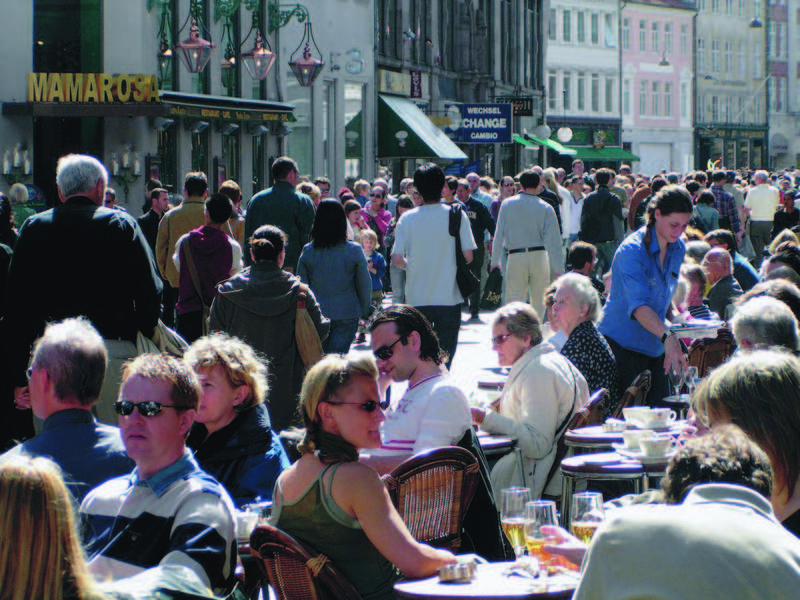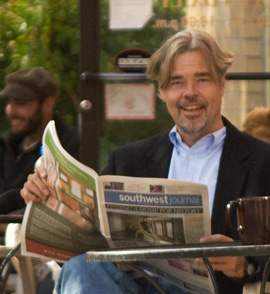Even if you’ve never seen the movie, you know the line from The Graduate when Benjamin, the befuddled recent college grad, is accosted by one of his dad’s friends with this unsolicited career advice: “I want to say one word to you…Plastics!”
Well, I’m feeling the same way about two words: “the commons”.
The commons means “all that we share and the ways we share it”—an immense bounty of wealth that belongs to each of us. This covers air and water, national parks and city streets, scientific knowledge and the latest dance steps.
And I believe the spirit and practice of the commons is crucial to making our cities and towns better places for everyone to live. All the places where people connect in our neighborhoods—sidewalks, parks, coffeeshops, community gardens, libraries, bike trails, transit, even the streets—are commons. And so are all the ways we connect—activist groups, online networks, informal gatherings, recreational activities.
The commons is the lifeblood of our communities, and without it what’s best about city life shrivels and dies. Who wants to live somewhere where there’s little to do but sit inside our private homes, no matter how grandly furnished and architecturally dazzling they are? That’s why the enduring mantra of real estate is “location, location, location”– because we want to live close to where the action is, where people hang out and have fun together, whether it’s hot music clubs or a quiet city park.
I devote an entire chapter in my just-published book All That We Share: A Field Guide to the Commons(written with Shareable partner, On The Commons) to the urban commons, exploring the ways that neighborhoods everywhere can thrive by sharing the assets they hold in common. Here are some of my favorite examples from the book.
We’re King of the Road. All of us live right on a commons that we seldom recognize: the street. For most of human history, streets were the river of life where kids played, teens flirted and old folks gossiped. Over the last 80 years, however, this public space has become the exclusive domain of cars. But not forever. Around the world bikers, pedestrians and even kids playing ball are reclaiming roadways as shared spaces. Traffic calming helps give everyone else equal standing with motorists while community groups take back the streets by painting murals in the intersections, plugging meters to turn parking spaces into mini-parks and other creative actions.
POPS: Privately-Owned Public Spaces. While your local coffeehouse, bookstore, tavern, infoshop, church or cowork space may technically be private property, it often functions as a commons. Savvy neighborhood merchants know they are not in the business of dispensing espresso or India Pale Ale. That may be where their income is, but people coming through the door to enjoy public life is the reason they are in business.
Redesigning Cities for Happiness. Former Bogotá mayor Enrique Peñalosa says good public spaces are essential to social justice because they are the only spots where rich and poor meet on equal footing. He built and refurbished large numbers of parks, libraries, bike trails, playgrounds, schools and pedestrian streets across the city, and inaugurated a high-speed Bus Rapid Transit system that offers subway-style speed at a fraction of the cost. Even if equality of income is impossible under a market economy, he says, “we can seek to achieve quality-of-life equality.”









